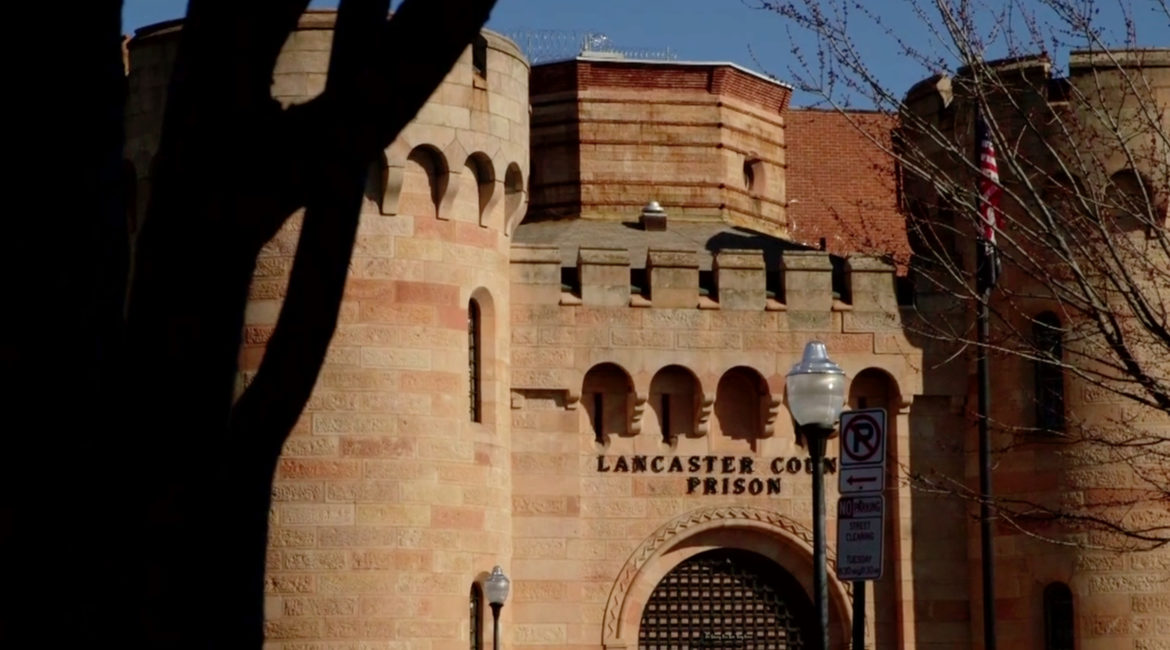Twin decisions last week in Pennsylvania, one from the governor’s office and the other from the courts, have left incarcerated youth in a state of limbo.
Advocates argue that the lack of a cohesive policy to protect young people across the commonwealth has led to a patchwork of responses, where some counties are releasing them and taking the necessary precautions while others aren’t. But even facilities doing all they can will not be able to keep youth in juvenile detention centers and county jails safe from COVID-19, they say.

Juvenile Law Center
Jessica Feierman
“The biggest problem is that facilities are not set up to handle pandemics,” said Jessica Feierman, senior managing director of the Juvenile Law Center.
The decisions came just days apart. On Friday, Gov. Tom Wolf signed an executive order to release up to 1,800 nonviolent offenders but it didn’t include youth in juvenile detention centers. While juveniles being held in the adult system could theoretically be released, they’re being held in the adult system for crimes categorized as violent, so they probably won’t be, said Lauren Fine, co-director of the Youth Sentencing and Reentry Project.
 “... the governor’s order is extremely narrow in terms of who qualifies,” she said. “And it categorically excludes almost all offenses including anything that could be categorized as violent.”
“... the governor’s order is extremely narrow in terms of who qualifies,” she said. “And it categorically excludes almost all offenses including anything that could be categorized as violent.”
That order came three days after the state Supreme Court denied a King’s Bench petition from advocacy groups seeking to release as many incarcerated young people as possible. Feierman had said the petition was filed to ensure there was a unified strategy to protect juvenile detainees.
Policies vary
Juvenile detention facilities and jails are run by the counties, so the ruling put the decision of whether or not to release young people and what precautions to take back into the hands of judges in each individual county.
“It’s disappointing that the court’s order then kicked it back to the counties without detailed guidance on what the standard should be,” Feierman said.
For example, her organization has heard that Allegheny County is taking steps to reduce their juvenile population, with a concerted effort to make sure they aren’t being incarcerated for actions like failure to appear in court.
Richard Gordon, the director of the Shuman Juvenile Detention Center in Allegheny County, said county judges are releasing all nonviolent offenders.
“They’re releasing a lot of kids on electronic monitor depending on their case circumstances,” he said. “That’s part of what they’re doing in the sense of controlling population.”
The Department of Human Services — which oversees the state’s juvenile detention centers — is temporarily holding juvenile detention admissions and creating an intake unit, which will hold new detainees for 14 days. If a detainee tests positive for COVID-19, they’ll be moved into isolation.
Several county juvenile detention facilities said they’re taking steps to protect their detainees from the spread of COVID-19. Dana Droll, administrator of the Central Counties Youth Center, said her facility has taken several precautions.
“Obviously we’re not having any visitors in or out, number one,” Droll said. “Number two, if we do receive an intake, under our medical provider they’re advising a seven-day quarantine, temperature twice a day.”
Droll also said all staff members have to run through a series of COVID-19-related questions and their temperatures are taken before they can enter the building.
Double disinfection
Harry Damerow, a detention supervisor at the Westmoreland County Regional Youth Center, said they’re taking staff and residents’ temperatures every day and that in-person visits have been put on hold, replaced by videoconferencing and phone calls. Cleaning procedures have been stepped up.
“We disinfect everything, we use the kitchen, it’s disinfected and then before we use it, it’s disinfected,” he said. “The dishes are disinfected twice. Everything is cleaned at least twice before the residents use them.”
Feierman said cancelling intakes and visits and cleaning facilities more thoroughly isn’t enough to protect incarcerated youth from contracting COVID-19. That’s because detention facilities aren’t set up to accommodate the sanitary needs and social distancing in Centers for Disease Control and Prevention guidelines.
“Problems that we’ve heard about that are particularly severe are young people lacking access to hygiene supplies, being asked to clean a facility without any masks or any kind of protective gear,” she said. “[And] sleeping in dorm-style living, bunk beds, where they’re just a few feet away from other young people.”
When facilities talk about quarantining new intakes or youth who might have symptoms, they are actually talking about solitary confinement, Feierman said.
“Which poses really serious risks to young people,” she said. “It can cause lasting psychological damage.”
Fine said youth being held in adult jails are being treated like the adult population, which means spending most of their time in solitary confinement. Due to the rapid increase in cases in Philidelphia’s jails, all inmates are being held in solitary with a maximum of only 20 minutes outside their cells per day, she said.
Feierman said staff coming in and out of detention facilities potentially puts both incarcerated youth and surrounding communities at risk of contracting COVID-19.
“Anything that happens in a facility is going to affect young people, it’s going to affect the community,” she said. “So, it’s a moment for us all to work together to solve this problem.”
